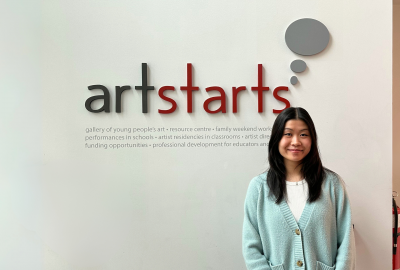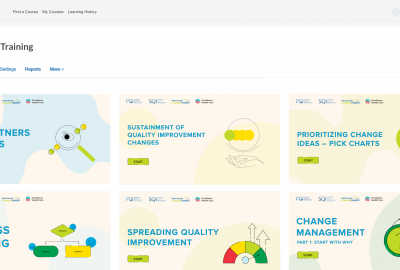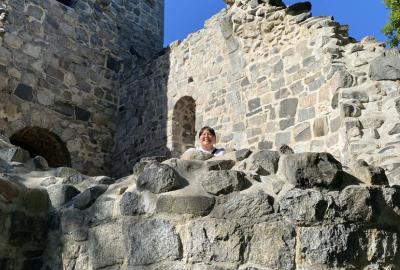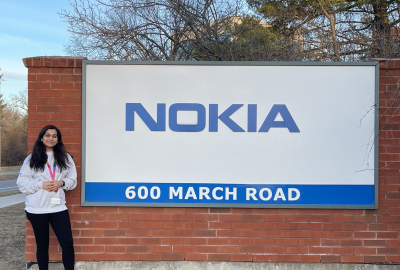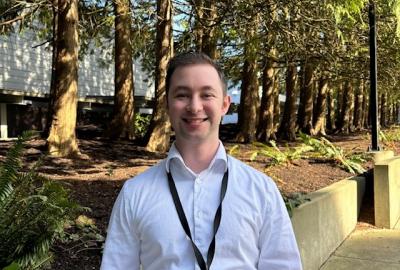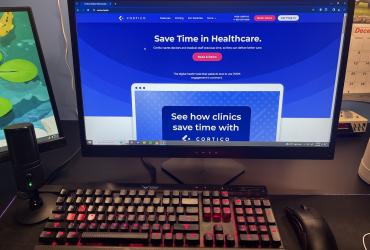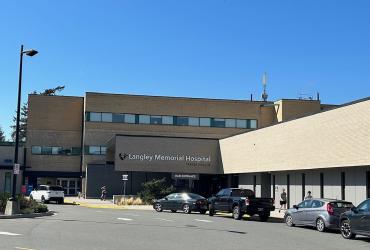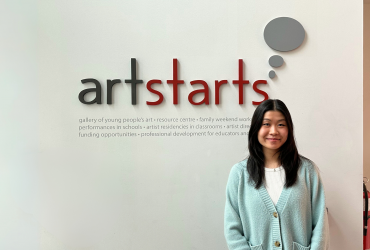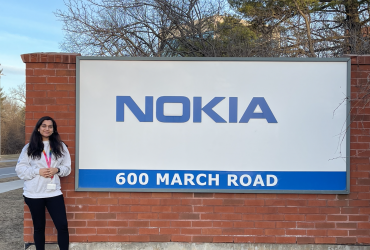Reflection
If there is one major takeaway from my work experience terms, it is that the most important things you can bring to the table as a co-op student are generally not taught in your courses. Approaching the experience with a genuine willingness to learn and absorb the knowledge of your mentors will serve you very well. In engaging with your work, no matter what it may be, not only will you find the experience vastly more rewarding, but you are much more likely to discover a passion for something of which you were not aware.
Throughout all my work terms, but particularly through this latest experience, I have cemented for myself the idea that was the motivation for my returning to post-secondary education: as long as I am contributing to work that aims to help people in a meaningful way, I will be able to find fulfillment in a variety of positions, and remain engaged long-term in any of them. While I remain committed to spending some time in the workforce having completed my undergraduate studies, I certainly see myself returning to complete graduate studies in the not-too-distant future. Beyond that, after having spent some time in biomedical research, I can say confidently that it is an exciting discipline filled with a lot of great people. I would be happy to return to this field in any capacity.
Most Valuable Aspects of This Experience
When I started in this position, I mostly expected to perform a lot of basic molecular biology techniques, maintain some cell cultures, and learn a few new things along the way. While I have done plenty of those things as well, I have learned so much more than expected in such a relatively short period of time. Not only do I feel much more confident in taking on a multi-faceted project, and organizing my time appropriately so as to keep on schedule, but I have gained valuable experience in techniques with which I was not even aware. A great example of these techniques is the use of a bio-layer interferometry (BLI) system, which is an optical technology that can analyze interactions between antibodies and receptors, among other things, and measure the kinetics of these interactions in real-time. It is an incredible technology, and one which I was very excited to be able to learn about, despite a fairly high learning curve for analyzing the results. All this to say that the most valuable aspect of this experience, by far, has been learning that I was ready to take on a challenge greater than I had expected to face. While I was admittedly nervous, and still will be going into the following chapter of my working career, I am confident I can succeed wherever I find myself next.
Connection to Academic Studies or Career Goals
Speaking of next steps, as mentioned in the previous section this work term has provided me with great experience in a variety of different techniques. Many of these skills are used often in biotechnology and other labs across the scientific community. One such skill is the culturing and maintenance of mammalian cell cultures, which is particularly sought-after, based on some preliminary investigation of available positions for laboratory work. Further, having another student work with me to support the project has provided me with more experience in efficiently delegating tasks, a skill I started developing years ago in retail management. As they were only in the lab certain days, learning to plan their work accordingly to best make use of their skills and support the project was another key skill that will serve me greatly going forward.
Aside from some very valuable additions to my C.V., I also feel very fortunate to have been able to gain experience in both sides of scientific research, industry and academia. While there are myriad differences, one that stood out to me was the differences in priorities between the two. Academia is more concerned with learning new things, and the pursuit of publishing findings. Industrial research, on the other hand, is about business first, so viable production of proprietary technologies is always going to be a focus. Seeing things from each of these perspectives, and learning the importance of each of their contributions to research as a whole, will help me greatly in choosing my path and developing as a scientist.
Advice for Future Students
To start, I think it bears repeating that you will not get everything right, right away. Don’t forget that experiential learning is just that, learning. With this in mind, don’t be afraid to give a wrong answer to a question posed of you. If you have put some thought into it, a wrong answer is almost without exception better than no answer at all. In addition, giving the wrong answer, and some of your thinking behind it, is a great learning opportunity. Without it, you might be working with false assumptions, so it benefits not only yourself, but the greater good of your team, too.
Another thing that I found to be very helpful throughout all my work terms was to get really comfortable with the computer programs that are used often in your position. While there are a variety of different programs that you might encounter, one of the most commonly used across the sciences, and many other fields, is Microsoft Excel. While most of us are comfortable with the basics of Excel, there all sorts of shortcuts, functions, and methods of data manipulation that make virtually anything one is trying to do much easier, and much faster. Play around with the program, get familiar, and watch some of the many video tutorials online to help give yourself some incredibly useful skills.
Finally, though this may seem like an obvious one, it certainly helped me to remind myself on occasion: take care of yourself! This is something that we as students often let fall by the wayside. Get a good night’s sleep, eat as well as you can, and get some exercise. You’ll do your best work when you are taking care of your brain and body. Also, don’t forget to take some time to unwind throughout the week, burnout happens to the best of us.
Good luck on your next adventure, you’re going to do great!

